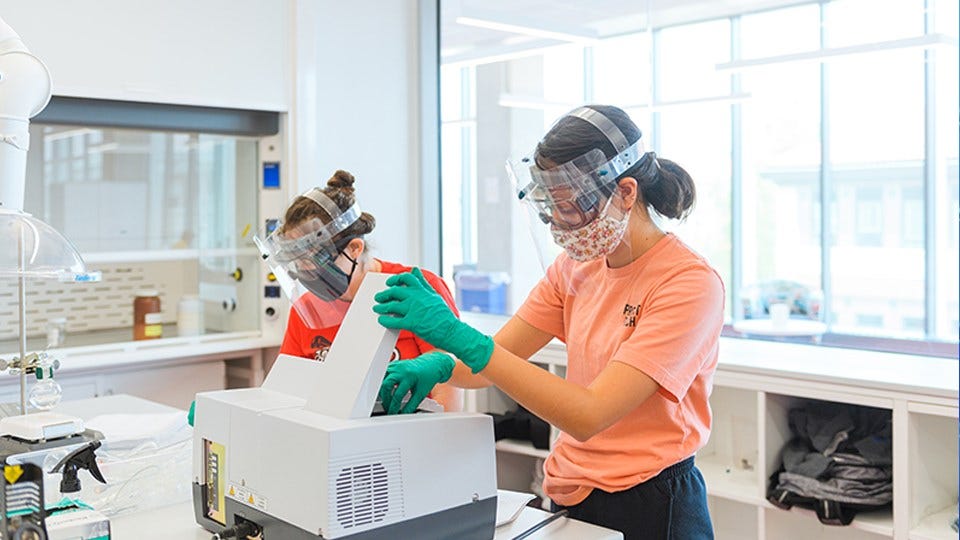Purdue, Butler Partner on Unknown Jobs of the Future
 Purdue students work through research projects in a campus lab. (photo courtesy: Purdue)
Purdue students work through research projects in a campus lab. (photo courtesy: Purdue)
Subscriber Benefit
As a subscriber you can listen to articles at work, in the car, or while you work out. Subscribe NowUndergraduate students often head off to college without knowing what career path they intend to pursue. But what if they do not know if a career field even exists?
Purdue University and Butler University intend to address the uncertainty. The two schools announced plans to collaborate on “Innovation College,” an attempt to prepare students for jobs and fields of expertise that could develop in the future.
The result is preparing students for the unknown.
“We’re educating and graduating students for jobs that not only don’t yet exist, but could be dominant in society and the economy in the future,” said Rhonda Phillips, dean of Purdue’s Honors College and the program’s co-coordinator. “We’ve got to be able to generate flexible, interdisciplinary thinkers and creative thinkers who are able to adapt and respond to these changes.”
The program will encourage faculty and staff to move outside of specific fields of study to create transdisciplinary learning programs and courses.
The colleges will promote experimenting with innovative teaching methods through stronger support for instructors to propose and try new ideas.
Purdue will work with Butler University’s Butler Beyond Transformation Lab.
Each university will use the funding they received from Indianapolis-based Lilly Endowment Inc. as part of its Charting the Future Initiative.
“I am confident that this partnership between Purdue and Butler will lead to new ideas to equip students with the transdisciplinary skills sets needed to both succeed in the future and to address some of society’s complex challenges,” said Kathryn Morris, Butler’s provost and vice president for academic affairs.
Morris says the partnership gives both universities the opportunity to be more creative in the education delivered to students.
Purdue says seed funding for new learning programs, courses and teaching ideas could come as early as January.
